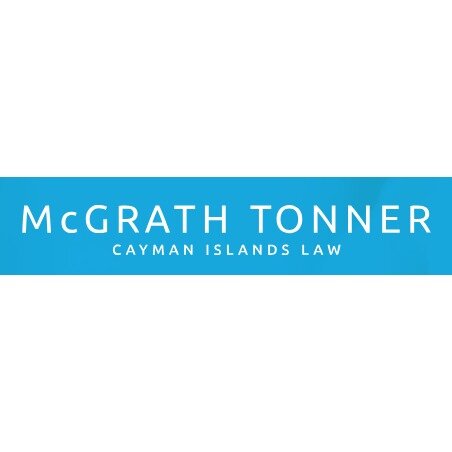Best Restructuring & Insolvency Lawyers in Cayman Islands
Share your needs with us, get contacted by law firms.
Free. Takes 2 min.
Or refine your search by selecting a city:
List of the best lawyers in Cayman Islands
About Restructuring & Insolvency Law in Cayman Islands
Restructuring and insolvency law in the Cayman Islands refers to the legal processes and frameworks designed to address financial distress, assist companies in restructuring their debts, or facilitate an orderly wind-down when insolvency cannot be avoided. The Cayman Islands is a premier international financial center, and its legal system is based on English common law with local statutes. The jurisdiction is well-known for its robust and flexible restructuring and insolvency procedures, making it a favored choice for many companies, creditors, and investors globally. These laws ensure that the interests of creditors, shareholders, and other stakeholders are balanced while providing avenues for restructuring viable companies or dissolving those beyond recovery.
Why You May Need a Lawyer
Legal situations involving restructuring and insolvency are often complex, involving multiple parties, jurisdictions, and significant amounts of money. Some common circumstances where you may need a lawyer in the Cayman Islands include:
- Your company is facing financial difficulties and needs to restructure its debts or operations.
- A creditor is threatening legal action, or a winding up petition has been filed against your company.
- You are a creditor or shareholder seeking to recover debts or protect your interests during insolvency proceedings.
- Cross-border insolvency issues arise, involving assets or parties in multiple countries.
- Your funds are invested in a struggling Cayman Islands entity, such as a hedge fund or investment company.
- You require guidance on directors’ duties and liabilities when a company faces insolvency risks.
A lawyer can clarify your rights and obligations, advise you on protective steps, represent you in court or negotiations, and help develop strategies tailored to your unique situation.
Local Laws Overview
The Cayman Islands restructuring and insolvency regime is primarily governed by the Companies Act (2023 Revision) and the Insolvency Practitioners’ Regulations. Key features of the local laws include:
- Winding Up: The formal insolvency process in the Cayman Islands is known as winding up. It can be initiated voluntarily by the company, by a creditor, or by the court.
- Provisional Liquidation: A unique aspect of Cayman law, provisional liquidation allows a company under threat of winding up to appoint provisional liquidators. This can provide breathing space to propose and negotiate a restructuring plan while maintaining court protection from creditor actions.
- Creditors’ Schemes of Arrangement: Companies may seek to restructure their debts with the approval of creditors and the court, enabling them to continue business under an agreed arrangement.
- Cross-Border Cooperation: The courts in the Cayman Islands can cooperate with foreign courts and insolvency practitioners, which is vital for multinational cases.
- Priority of Payments: Cayman Islands law sets out specific rules for how assets are distributed among creditors, with secured creditors generally receiving priority over unsecured creditors.
- Directors’ Duties: Directors must act in the best interests of creditors when a company is or may be insolvent, and may be held personally liable in cases of misconduct.
Frequently Asked Questions
What is insolvency in Cayman Islands law?
Insolvency is when a company cannot pay its debts as they fall due or when its liabilities exceed its assets. Cayman law recognises both cash flow and balance sheet insolvency tests.
What is the role of provisional liquidation?
Provisional liquidation is a court-supervised process that protects a company from creditor action while allowing it to pursue restructuring proposals. Provisional liquidators can be appointed to safeguard assets and manage affairs during restructuring discussions.
How can a company restructure its debts in the Cayman Islands?
Companies can use tools such as schemes of arrangement, which allow them to propose compromises to their creditors. These arrangements require approval by a majority in value and number of creditors, and court sanction.
What are the grounds for winding up a company?
A company can be wound up if it is unable to pay its debts, by special resolution of shareholders, or if the court decides it is just and equitable to do so.
Can foreign creditors participate in insolvency proceedings?
Yes, both local and foreign creditors can participate, file claims, and vote in Cayman restructuring and liquidation proceedings.
Will directors be held personally liable for company debts?
Generally, directors are not personally liable unless they have acted dishonestly, breached their duties, or caused wrongful or fraudulent trading.
How long does the winding up process take?
The duration varies widely depending on the complexity of assets and creditor claims, but many cases take several months to several years.
Will the company’s business have to stop during restructuring?
Not necessarily. Under provisional liquidation, the company may continue to operate while restructuring plans are negotiated.
Is insolvency information made public?
Some information, such as court filings and advertising of winding up petitions, is public. Details of creditor claims and financial affairs may remain confidential.
What are the alternatives to formal insolvency?
Alternatives include private workouts, refinancing, informal agreements with creditors, and consensual restructuring outside the courts.
Additional Resources
If you need more information or assistance, consider the following resources in the Cayman Islands:
- The Grand Court of the Cayman Islands - the main court handling insolvency and restructuring proceedings.
- The Cayman Islands Monetary Authority (CIMA) - regulates financial services and may be involved when regulated entities enter insolvency.
- Insolvency practitioners and licensed firms in the Cayman Islands - offer professional advice and services in insolvency matters.
- The Restructuring and Insolvency Specialists Association (INSOL) - a global association including local Cayman experts.
Next Steps
If you believe you need legal assistance with restructuring or insolvency in the Cayman Islands, consider these next steps:
- Gather all relevant financial information about your company, including debts, contracts, and correspondence with creditors.
- Contact a qualified Cayman Islands attorney or insolvency practitioner with experience in restructuring and insolvency matters.
- Arrange a consultation to discuss your situation, learn about your legal rights and options, and develop a practical plan.
- If urgent action is needed, such as protecting assets or responding to a winding up petition, do not delay in seeking advice, as time limits may apply.
- Stay informed about developments and follow your legal advisor’s recommendations to maximise your outcomes and minimize risks.
Proactively addressing insolvency or restructuring concerns with expert legal support will help protect your interests and provide a clear path forward.
Lawzana helps you find the best lawyers and law firms in Cayman Islands through a curated and pre-screened list of qualified legal professionals. Our platform offers rankings and detailed profiles of attorneys and law firms, allowing you to compare based on practice areas, including Restructuring & Insolvency, experience, and client feedback.
Each profile includes a description of the firm's areas of practice, client reviews, team members and partners, year of establishment, spoken languages, office locations, contact information, social media presence, and any published articles or resources. Most firms on our platform speak English and are experienced in both local and international legal matters.
Get a quote from top-rated law firms in Cayman Islands — quickly, securely, and without unnecessary hassle.
Disclaimer:
The information provided on this page is for general informational purposes only and does not constitute legal advice. While we strive to ensure the accuracy and relevance of the content, legal information may change over time, and interpretations of the law can vary. You should always consult with a qualified legal professional for advice specific to your situation.
We disclaim all liability for actions taken or not taken based on the content of this page. If you believe any information is incorrect or outdated, please contact us, and we will review and update it where appropriate.
Browse restructuring & insolvency law firms by city in Cayman Islands
Refine your search by selecting a city.
















